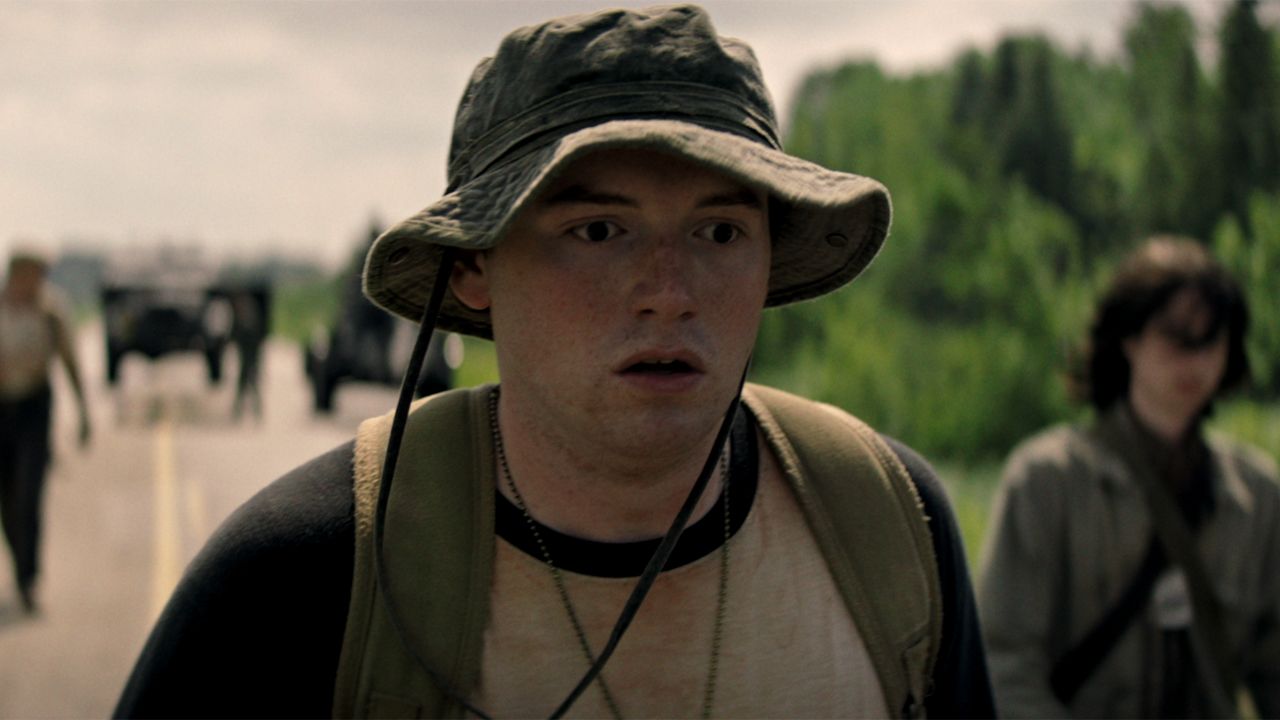
With a new *Hunger Games* movie coming next fall, it’s interesting to see so many dystopian novels being adapted for the screen, particularly those by Stephen King. I’m familiar with King’s classic horror stories like *It*, *Carrie*, and *The Shining*, but I’ve recently become curious about his work in the dystopian genre, with films like *The Long Walk* and *The Running Man* scheduled for release through 2025 – *The Running Man* is coming out in November. As a longtime fan of the *Hunger Games* films (and the books they’re based on), and knowing that Francis Lawrence, who directed many of the *Hunger Games* movies, is also directing *The Long Walk*, I expect I’ll enjoy it.
I was completely mistaken. Everyone says Stephen King writes intense stories, and I’d been warned that *The Long Walk* was especially brutal, even for devoted readers. Now that I’ve seen the movie and read the reviews, I understand why. Let me share my thoughts.
This article contains some spoilers from The Long Walk.
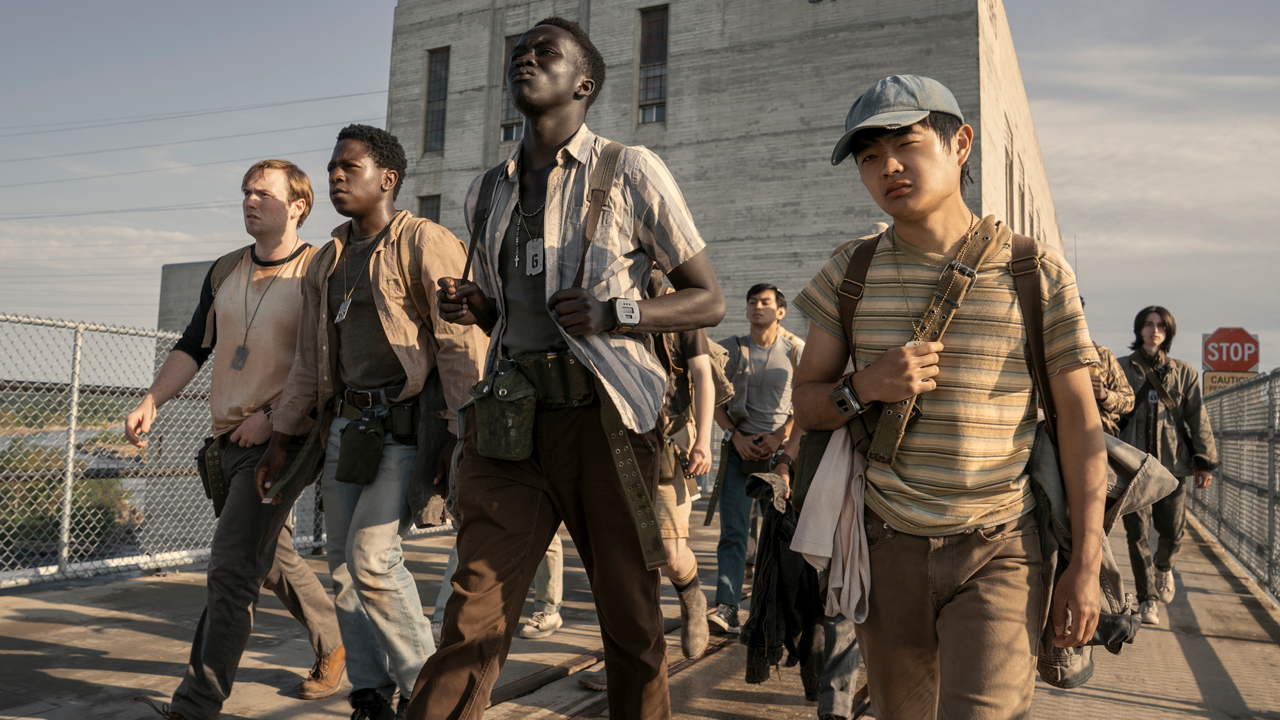
As I Predicted, There’s Shared DNA Between The Long Walk And The Hunger Games
I recently watched *The Long Walk*, a movie based on a Stephen King book from 1979 that I wasn’t familiar with. After seeing it, I’m struck by how similar it is to *The Hunger Games*. Both stories are set in a bleak, futuristic America where the government forces children to compete in a deadly contest for public amusement, reflecting a deeply flawed society. While both are disturbing, King’s original concept feels even more unsettling.
Compared to *The Hunger Games*, *The Long Walk* has a more focused story. Instead of spending a lot of time building the world and explaining how things got to be the way they are, the story stays centered on the competition itself. I appreciated that the book didn’t feel the need to over-explain; it trusted the reader to understand the situation, which actually made the world feel even more disturbing. Looking back, the science fiction elements in *The Hunger Games* distracted me a bit from the central horror – children being killed for entertainment – something *The Long Walk* confronts directly. Both books are powerful stories about oppression, inequality, and fighting back, but *The Long Walk* is far more intense and unflinching.
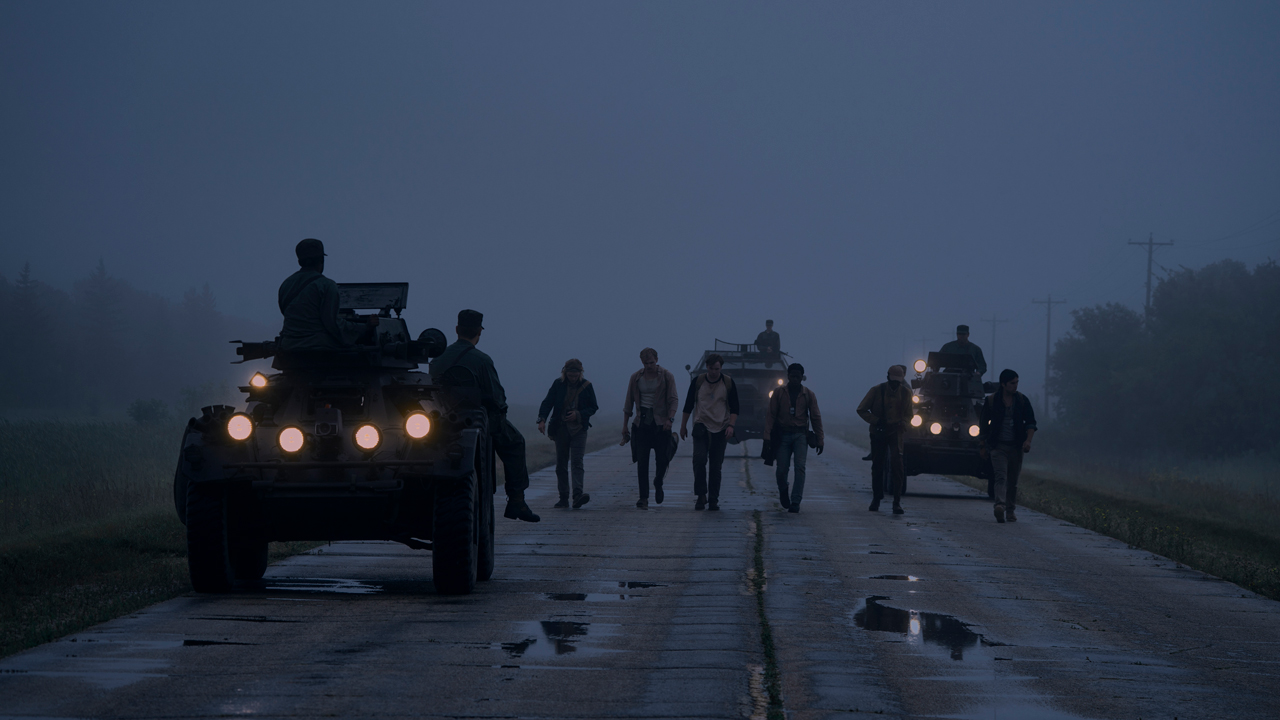
The Long Walk Is A LOT More Brutal Than The YA Franchise
I remember being totally hooked by *The Hunger Games* when I first read it as a kid – it felt so dramatic and exciting! Looking back, I realize a lot of that was probably a way to sneak in some pretty sharp political commentary, but at the time, I was mostly caught up in things like the love triangle with Katniss, Peeta, and Gale. It was compelling to see this incredibly brave young woman volunteer to save her sister and then have to navigate this crazy, over-the-top reality TV competition where she’s the ultimate underdog. Plus, there were just fun elements, like her survival skills in the wild, her amazing archery, and those terrifying genetically engineered creatures they threw in to make things even more intense for the final contestants.
The movie *The Long Walk* is stark and brutally straightforward. It centers around fifty boys who’ve won a lottery offering wealth and a single wish – but only if they’re the last one walking. The entire film takes place during this walk, where they’re forced to maintain a three-mile-per-hour pace constantly, or face execution. It’s incredibly harsh – they have to use the bathroom while walking, and deal with injuries or illness on their own, or die. Unlike *The Hunger Games*, there’s no hiding, resting, or waiting it out. The film puts you right there with them, and it kept me on the edge of my seat the entire time.
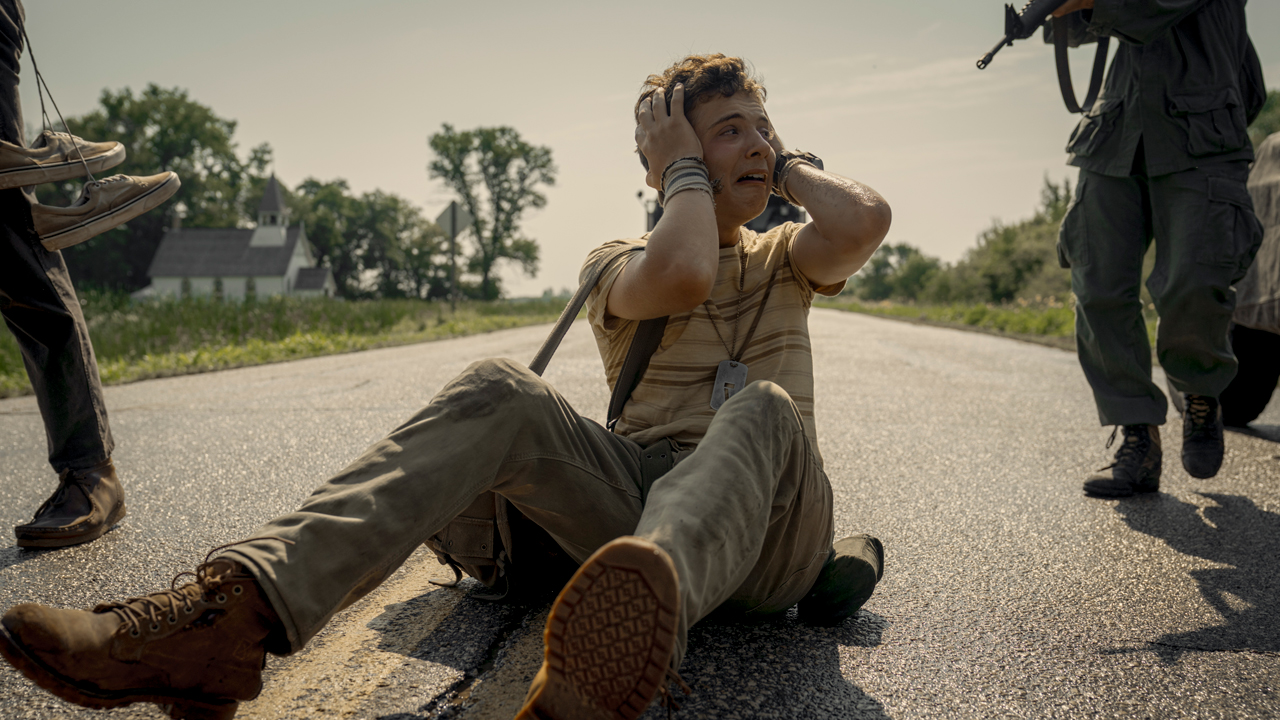
The Kills Hit A Lot Harder In The Long Walk, And I Was Not OK
Francis Lawrence explained why he believes *The Long Walk* needs an R rating. He wanted the audience to truly feel the characters’ physical and emotional breakdown, and to experience the same intensity as the book, staying true to its themes. While all the *Hunger Games* films were rated PG-13, Lawrence felt *The Long Walk* was different and more impactful.
The very first death in *The Long Walk* immediately establishes how brutally violent the film is. A young contestant named Curley suffers a severe leg cramp and is shot when he can’t keep up. The camera doesn’t look away, showing the full impact of the gunshot. Throughout the movie, which follows a walk lasting around a week and over 300 miles, characters are killed for relatively minor injuries – like twisting an ankle, struggling to use the bathroom, or even falling asleep. Like the characters in the film, I found the constant deaths difficult to watch and became increasingly fearful of the consequences of being the last one remaining.
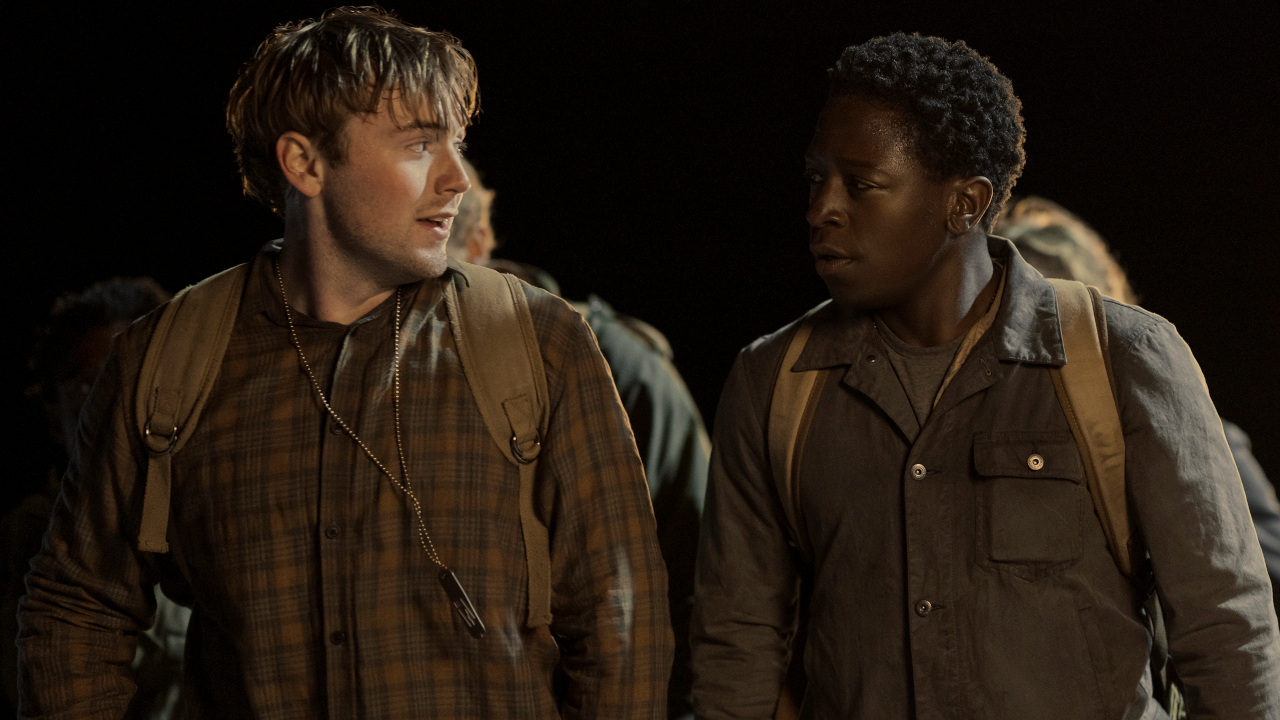
The Relationship Between Peter And Raymond Ultimately Kept Me Going
What truly makes the movie worthwhile is the developing friendship between some of the characters walking, especially between Cooper Hoffman’s Raymond Garraty and David Jonsson’s Peter McVries. One character is determined to use his wish for revenge, while the other wants to improve the world. This contrast between optimism and cynicism, playing out as a life-or-death struggle within their stories, provides a welcome balance to the film’s intense and frightening events.
I was surprised the movie’s ending differed from the book, which I felt perfectly captured the story’s themes. Despite the film being incredibly effective and raw – and honestly giving me some anxiety and bad dreams – I’m glad I saw it. I just wasn’t ready for how dark and disturbing Stephen King’s vision of the future was in *The Long Walk*. Fellow *Hunger Games* fans, be warned – this one is intense!
Read More
- All Golden Ball Locations in Yakuza Kiwami 3 & Dark Ties
- A Knight Of The Seven Kingdoms Season 1 Finale Song: ‘Sixteen Tons’ Explained
- Gold Rate Forecast
- Hollywood is using “bounty hunters” to track AI companies misusing IP
- Mario Tennis Fever Review: Game, Set, Match
- What time is the Single’s Inferno Season 5 reunion on Netflix?
- This free dating sim lets you romance your cleaning products
- All Songs in Helluva Boss Season 2 Soundtrack Listed
- Every Death In The Night Agent Season 3 Explained
- 4. The Gamer’s Guide to AI Summarizer Tools
2025-09-16 01:12